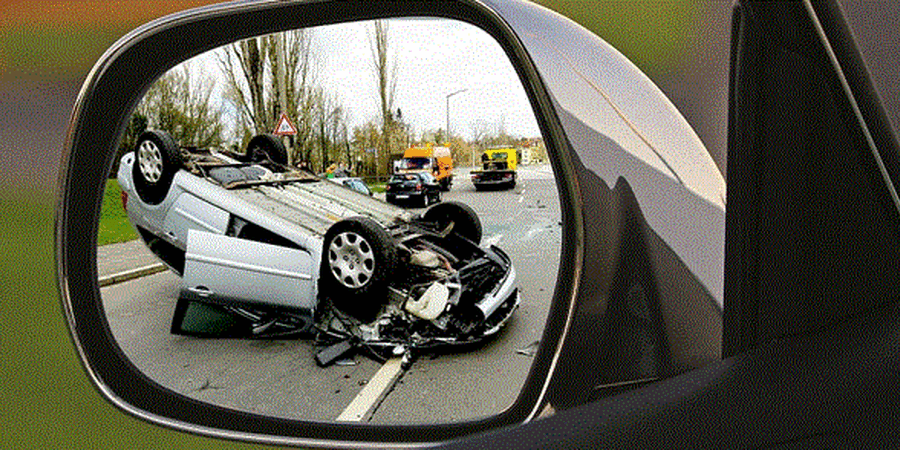The aftermath of a car crash is never easy, especially when injuries or fatalities are involved. If a person has survived a severe crash and requires physical rehabilitation, chances are he or she is also going to need mental health therapy. Car crash wounds, no matter how severe, eventually heal. But the long-term emotional impact of a crash can cripple an affected person for years to come.
One thing is for certain, victims of car wrecks need to contact a reputable lawyer as soon as humanly possible. Says the professionals at Chopin Law LLC, a car accident lawyer New Orleans, after surviving an auto accident, it’s of paramount importance to hire an experienced legal advocate who will fight on one’s behalf. Only a lawyer who is passionate about advocating for a client’s legal rights will fight for the financial compensation they deserve.
But the million-dollar question is, will the compensation be enough to help a person get through the emotional impact of a car wreck? What are some of the steps a car crash victim can take to minimize the long-term stress and trauma that accompanies a car crash?
According to a recent report by New York Tech, an estimated 1.3 million people die in car crashes annually. Vehicular collisions can have a lingering impact on an individual’s emotional and mental health, especially if the accident was very serious and violent. It can result in PTSD or post-traumatic stress disorder, which can significantly affect a person’s overall well-being and everyday life.
Defining Trauma
Trauma is generally defined as an emotional response to a disturbing or distressing event. When it comes to bad vehicular collisions, it can involve either experiencing a life-threatening circumstance or being an eyewitness to one. Trauma also occurs because of the uncertainty and fear that commonly follows a severe car wreck in which innocent people are badly injured or even killed.
Common symptoms of trauma include but are not limited to the following:
--Disbelief and shock
--Irritability and shock
--Fear and anxiety
--Insomnia, nightmares, and night sweats
--Self-blame, self-loathing, and a deeply laden guilt
--Self-imposed isolation and social withdrawal
--A profound difficulty when it comes to making a minor or major decision
--Difficulty concentrating
--Self-medicating with alcohol and other drugs, both legal and illicit
The symptoms of trauma can have a significant, if not profound, impact on a person’s life, overall emotional and mental health, and relationships. If left untreated for too long, the symptoms fester, worsen, and result in PTSD, which must be treated in a clinical atmosphere under physician supervision.
Defining PTSD
Says New York Tech, PTSD is clinically defined as a psychiatric disorder that occurs after a severe traumatic event. The mental condition can result in disturbing and intense emotional symptoms that can last for months or, in some cases, years.
Some of the more common symptoms of PTSD include but are not limited to the following:
--Avoidance at all costs of being reminded of the traumatic event
--Re-experiencing the event in the form of vivid flashbacks
--Self-hatred, along with bad thoughts and beliefs about oneself
--Difficulty gauging and regulating emotional responses and outbursts
--Hypervigilance and hyperarousal
--Detachment from family and friends, along with intense feelings of numbness
--Overdrinking and self-medicating with drugs
--Alterations in personality and behavior
--Thoughts of suicide
PTSD greatly impacts a person’s relationships and everyday life in a negative way. It increases the likelihood of substance abuse, depression, and a variety of mental health disorders.
Dealing With Trauma and PTSD
Being made to deal with severe trauma and/or PTSD after a severe vehicular collision can be difficult, but it is necessary to seek support and help as soon as possible.
Therapy
Therapy is the first step in assisting affected individuals with processing their thoughts and emotions that might surround the car crash event. Therapy also provides coping mechanisms and strategies to manage festering symptoms better. Common therapies include Cognitive Behavior Therapy (CBT) and Eye Movement Desensitization and Reprocessing (EMDR)
Self-Care
It’s important to practice self-care after a bad car crash. It can help with stabilizing the turbulent emotions that can follow a traumatic event. Physical activities such as jogging, weightlifting, swimming, yoga, and walking will relieve stress and also improve mood by working with the brain to release endorphins. These are the body’s natural mood elevators and painkillers.
It’s also important to get enough sleep and to concentrate on a healthy diet of whole foods.
Support Groups
Joining a support group is a terrific way to connect with others who have endured similar traumatic experiences. You not only learn from others and how they have managed to deal with their trauma but also commiserate with them while receiving much-needed emotional support. You will also find yourself helping others to heal, which in itself is a big part of an individual’s healing emotional process after a bad car wreck.
In the end, if none of these things work, and an individual finds themselves spiraling out of control, it’s best to seek out medical treatment for their trauma and PTSD. Choosing to ignore the symptoms can only lead to major long-term mental complications.


